How do you explain the fact that people who eat salty meals have normal blood pressure, but people who eat light meals have high blood pressure?
Thanks for the invitation to Wukong Q&A!
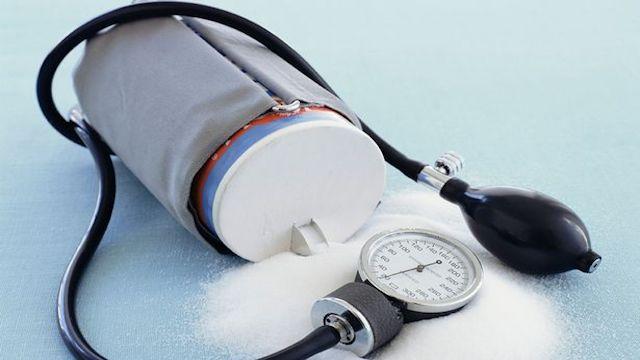
This is a question about risk factors for hypertension and causes of hypertension. Excessive dietary intake of salt, as mentioned in the question, has indeed been shown to be one of the important risk factors for hypertension. The rationale for this is relatively simple: excessive salt consumption will cause sodium and water storage, and blood volume will rise accordingly, with a consequent increase in blood pressure. However, in the clinic will also observe some as mentioned in the question, certain diet salty people blood pressure is normal, and eat not salty people on the contrary is the phenomenon of high blood pressure. This phenomenon can be explained from a variety of perspectives, which Dr. Elf will analyze for you below.
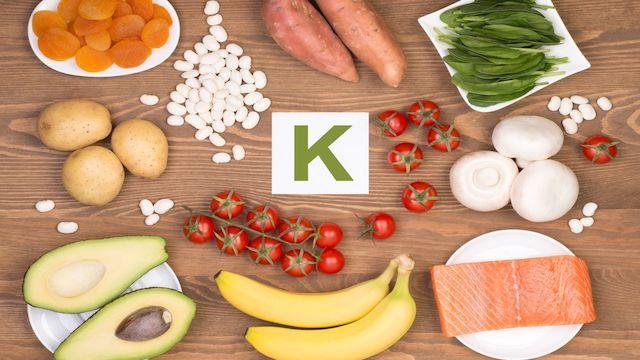
First, let's talk about the phenomenon of eating salty food but having normal blood pressure. As mentioned earlier, it has been scientifically proven that consuming too much salt can lead to high blood pressure, and there is some variation as to what amount of salt consumption will lead to higher blood pressure for a particular individual. This difference is not measured in terms of ordinary saltiness or lightness, but needs to be measured in relation to the individual's balance of absorption and excretion. In addition, recent studies have shown that consuming too much salt when supplemented with foods containing potassium ions can promote the excretion of sodium ions, which in turn lowers blood pressure. Thus, excessive salt consumption is inextricably linked to individual body composition and dietary structure, and since these vary from person to person, it is possible that people on salty diets may have normal blood pressure.
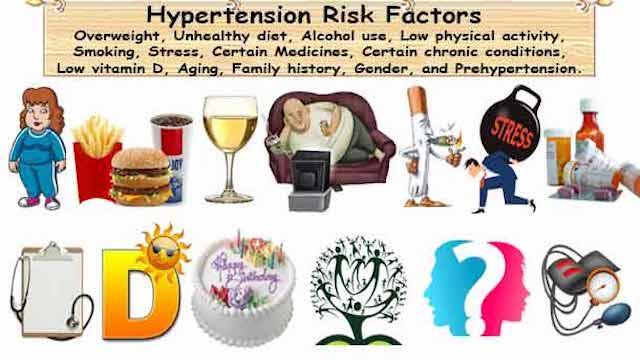
Let's talk more about the issue of increased blood pressure despite not eating salty food. This phenomenon has been recognized by the medical community for a long time, and therefore there is a classification of hypertension as high sodium-dependent and high sodium-non-dependent, the latter being the part of the population that still has a high blood pressure by controlling the amount of sodium in the diet. This phenomenon occurs mainly because hypertension is a complex disease, associated with a variety of risk factors, if there are factors other than excessive sodium intake, may also lead to increased blood pressure. For example, many women are prone to high blood pressure after menopause, which is related to the change of the human body's hormone secretion pattern and changes in vascular reactivity; some people's diets contain less salt, but they like to favor fatty foods, which may also increase atherosclerosis and increase blood pressure; some people like to smoke, and some suffer from diabetes mellitus and hyperlipidaemia, which are also the risk factors for high blood pressure.
The above explains the relationship between hypertension and risk factors from two perspectives, mainly emphasizing that the causes of hypertension are complex and related to many factors, and that the process of daily prevention and control of blood pressure should also be focused on multiple aspects, rather than losing sight of one or the other.
How can it be explained that people who eat salty food have normal blood pressure, while those who eat light food have high blood pressure? In the evening, a friend said: she eats a lot more salty than her partner, blood pressure is normal, while her partner eats not salty, and often do not eat dinner, but high blood pressure. How can this be explained? Today, Dr. Zhang will talk about this problem, hoping to help more people.
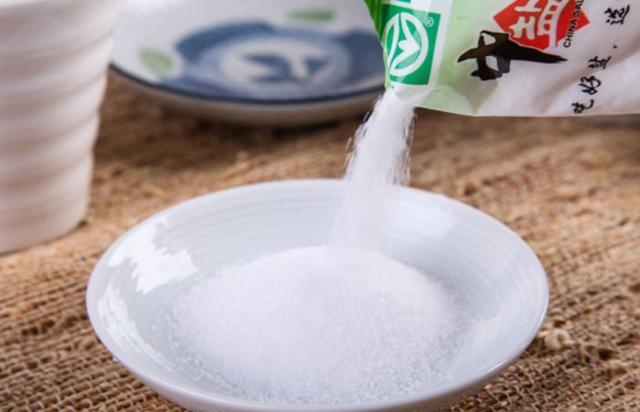
Raising such a question indeed makes many friends feel similarly, not only about hypertension, but also about many other diseases, such as lung cancer for non-smokers but nothing for smokers; liver cancer for non-drinkers but nothing for drinkers, and so on. So, how should we recognize this kind of problem? Let's also take hypertension as an example. As we all know, primary hypertension is a multifactorial disease, such as genetic factors, age and many other risk factors. Eating a lot of salt is only one of the many risk factors for hypertension, and it cannot be said that all people who eat a lot of salt will necessarily develop hypertension.
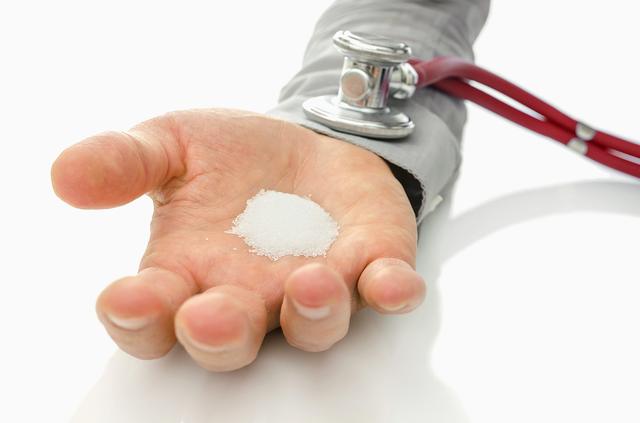
From another perspective, 60% of Chinese hypertensive patients have salt-sensitive hypertension caused by eating too much salt, but there are still 40% of hypertensive patients who do not have salt-sensitive hypertension. It would be unfair to measure these non-salt-sensitive hypertensive patients on the basis of salt consumption, because after all, 60% of Chinese hypertensive patients have a clear correlation between the occurrence of hypertension and salt consumption.
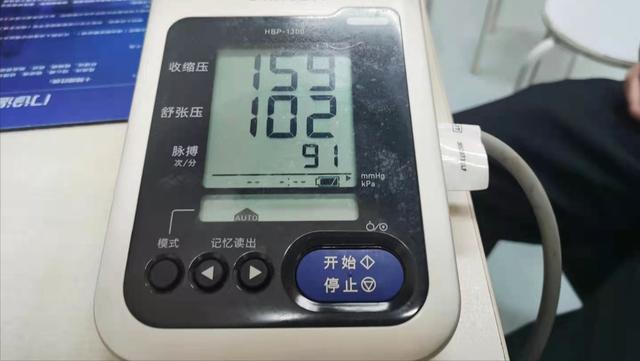
I guess I finished these words above, the discerning eye has been able to understand the relationship between eating more salt and high blood pressure, as an ordinary Chinese people, want to stay away from high blood pressure, I think the first place to stay away from a high salt diet, as little salt as possible, the best is the daily salt intake of no more than 6 grams. Only if Chinese people pay attention to the issue of salt, we can gradually reduce the number of hypertension patients in China, don't you think so?
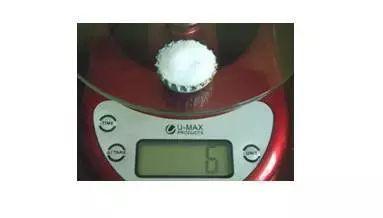
I hope that today's article can help all of you, and I hope that my introduction has made you more aware of the relationship between salt and high blood pressure. For more information on high blood pressure, you can click on the following course to get it: Blood Pressure Course by Dr. Zhang
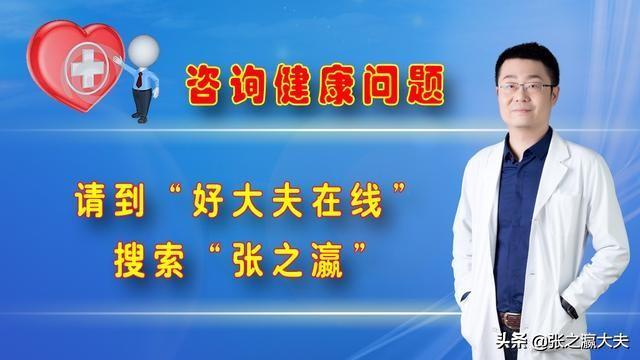
May be a lot of people are very young to know, do not eat salt no strength, summer sweating more drink some light salt water, because the sodium in the salt can regulate the body's water and osmotic pressure, enhance neuromuscular excitability, to maintain the acid-base balance and normal function of blood pressure, but some studies have shown that too much sodium intake, the ratio of sodium to potassium in the urine increases, which can lead to high blood pressure.

Epidemiologic investigation of hypertension also confirmed that people's blood pressure level and the prevalence of hypertension are closely related to salt intake. Therefore, it is scientifically justified to advocate a low-salt diet for the prevention of hypertension. However, some netizens have recently raised a question like this:How can it be explained that people who eat salty meals have normal blood pressure, but those who eat light meals have high blood pressure?
This starts with recognizing hypertension and understanding the causes and types of hypertension. Hypertension, defined as a systolic blood pressure ≥140 mm Hg and or a diastolic blood pressure ≥90 mm Hg, is one of the most common chronic diseases, which can be accompanied by functional impairment of organs such as the heart, brain, and kidneys, and is the most important risk factor for cardiovascular and cerebrovascular diseases.
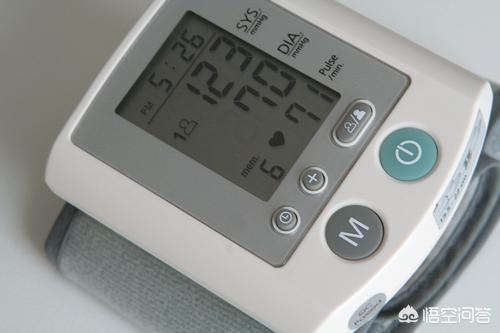
Clinically, hypertension can be divided into two categories: primary hypertension and secondary hypertension.
The etiology of the development of primary hypertension has not been clearly defined, but it accounts for more than 90% of all patients with hypertension; secondary hypertension is strongly associated with stimulation by acquired factors.
The causes of hypertension are complex, and current research suggests that hypertension is a polygenic hereditary disease, with 30% to 50% of hypertensive patients having a genetic background.
Secondly, acquired mental and environmental factors affect the self-regulation of blood pressure, and again, the age factor affects the blood pressure in the body circulation. Epidemiological studies have found that the prevalence of hypertension has a tendency to increase with age, with a high prevalence in those over 40 years of age.
In addition, poor dietary structure is also a risk factor for hypertension. Patients with high blood pressure despite a low-salt diet may have primary familial hypertension, while personality traits, such as constant over-worrying and over-stressing, may also cause blood pressure to exceed the normal reference range.
High blood pressure requires long-term use of antihypertensive drugs to regulate, along with dietary regulation, mental relaxation and appropriate exercise to control weight and so on.
How do you explain the fact that people who eat salty meals have normal blood pressure, but people who eat light meals have high blood pressure?
Salt restriction is an important means of preventing high blood pressure, and our 2016 dietary guidelines recommend a salt intake of no more than 6g per day.
However, many people who eat over the limit still have normal blood pressure, and those who eat on the lighter side get high blood pressure instead. How can this be explained? Words of food to popularize for you:
Excessive salt intake is not the only cause of hypertension. However, the relationship between salt and hypertension is individualized, and the term "salt sensitivity" should be mentioned.
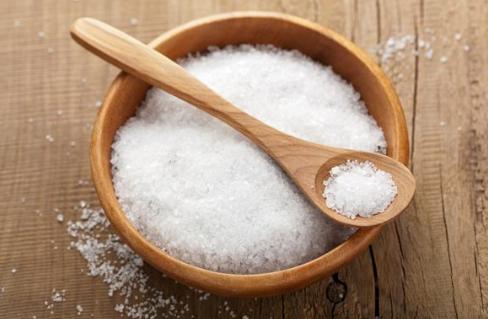
What is salt sensitivity?
Salt sensitivity refers to the fact that individuals within a population present different blood pressure responses to relatively high salt intake.The hypertension associated with this is called salt-sensitive hypertension.
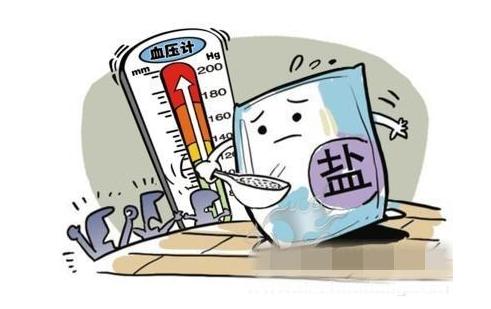
[Relationship between salt sensitivity and essential hypertension].
Salt sensitivity is an intermediate genetic phenotype in essential hypertension.
The detection rate varies among different countries and ethnic groups. Among patients with primary hypertension in the northern population of China58%above are salt-sensitive, and nearly all of the normal blood pressure population1/3for salt-sensitive individuals. And salt sensitivity of blood pressure increases with age, especially in hypertensive patients.
That is, when they consume high levels of salt, their blood pressure is more likely to rise.In addition obese individuals, patients with metabolic syndrome and diabetes mellitus, and patients with low-renin hypertension are all more sensitive to the antihypertensive response to salt restriction.
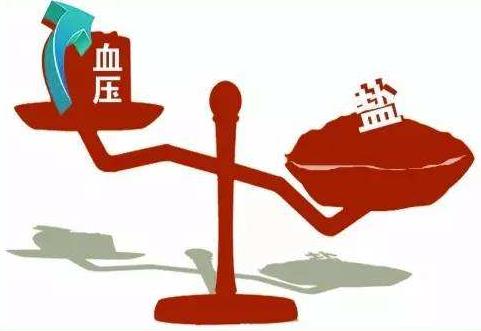
[The key to preventing salt-sensitive hypertension is salt restriction.]
Salt restriction is the key to preventing salt-sensitive hypertension.The per capita daily salt intake in most parts of the country is between12gabove, well above the recommended salt intake6g/d, so salt restriction is still the hard truth in our country.
Of course, to prevent hypertension we can't simply restrict salt, but an overall balance of electrolytes thatOf these, sodium and potassium stabilization is the most critical.High blood pressure, which requires moderate sodium and moderate potassium to prevent.
In addition.Dietary supplements of adequate fruits and vegetables, avoidance of high sugar and high fat, regularity of work and rest, and maintaining a happy and relaxed mood are also beneficial in maintaining normal blood pressure levels.
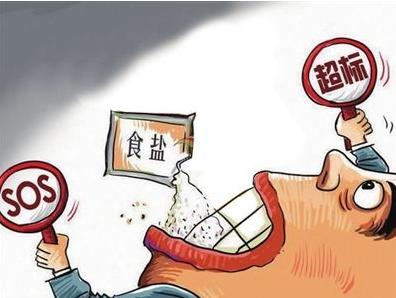
bibliography
[1] Chinese expert guidance on salt restriction management to control hypertension developed by the Hypertension Group of the Cardiovascular Disease Branch of the Chinese Medical Association in 2015
[2] LI Yuming,YANG Ning. Characteristics and prevention of salt-sensitive hypertension[J]. Chinese Journal of Practical Internal Medicine,2015,35(04):299-302.
Author: Ruan Jun Zhao Lichao
Hypertension is one of the most representative, widespread and common chronic diseases in China. It is a progressive cardiovascular damage disease characterized by a continuous rise in arterial blood pressure, and is the most important risk factor for the occurrence and death of chronic kidney disease, coronary heart disease and cerebrovascular disease.

Criteria for determining hypertension
Clinical criteria for the diagnosis of hypertension: Hypertension is diagnosed when systolic blood pressure (high pressure) is ≥140 mm Hg or diastolic blood pressure (low pressure) is ≥90 mm Hg on three measurements taken on non-same day.

Characteristics of the current distribution of hypertensive patients in China
There is evidence that the prevalence of hypertension in China is higher in urban than in rural areas in the same region; higher in developed than in less developed areas; higher in the north than in the south; higher in the east than in the west; and lower in women than in men before menopause and higher in men after menopause.
It can be seen that although the pathogenesis of hypertension has not yet been clarified, studies generally agree that genetics, environmental factors, lifestyle and high sodium diet are the main risk factors for the development of hypertension in our population.

About high sodium diets
Some scientific studies have proved that: sodium chloride (sodium salt) intake is positively correlated with the level of blood pressure and the prevalence of hypertension, in our daily lives, we intake of sodium salt if the average daily growth of 2 grams, high pressure (systolic blood pressure) and low blood pressure (diastolic blood pressure) increased by 2 millimeters of mercury and 1.2 millimeters of mercury, respectively.
Therefore, we can determine that a high-sodium diet is the most important risk factor for the development of most of our hypertensive patients.

On the relationship between dietary saltiness and lightness and hypertension
In daily life, excessive intake of sodium salt (eating salty) leads to elevated blood pressure mainly due to sodium ions. Therefore, it is indisputable that reducing salt intake has a significant antihypertensive effect.
However, this effect often varies according to the physiological differences of each individual. Like some people do not consume much sodium, in other words, they do not eat salty food, but they are hypertensive; while some people eat a light diet but have hypertension, this situation does exist.
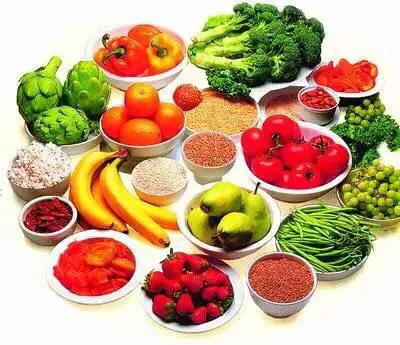
This condition is mainly related to the complexity of the pathogenesis of hypertension, theIt doesn't mean to say that eating overly salty foods doesn't have an effect on people with high blood pressure or that excessive sodium intake is not a risk factor for high blood pressure.
Therefore, in our daily diet, according to the recommendations provided by the World Health Organization (W H O) and China's health management authorities, it is more appropriate for our residents to consume less than 6 grams of sodium per person per day, and patients with high blood pressure should consume less than 5 grams of salt per person per day as a limited standard.
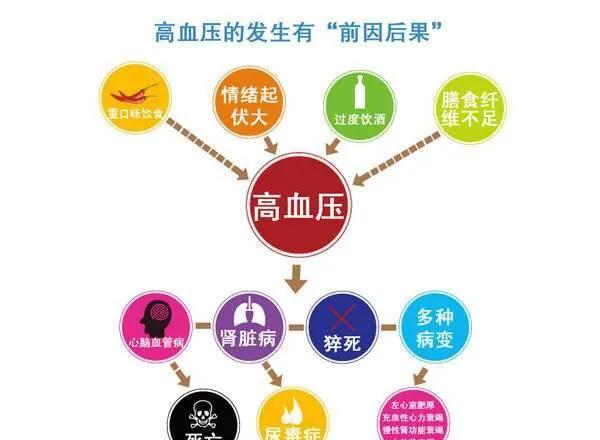
Key measures to reduce sodium intake
People should correct the habit of living with too salty taste; families are advised to use salt-limiting spoons to have a good idea of sodium intake; try to eat less snacks, pickles, pickles, MSG, soy sauce and other salty and heavy foods; and it is recommended that people with good renal function should try to use potassium-containing cooking salts instead of sodium salts.
In addition, in our daily life, we should also quit smoking, limit alcohol, increase physical activity, increase the intake of fruits and vegetables and dietary fiber, reduce the intake of saturated fatty acids, and maintain a good psychological state.
We can only keep ourselves in good health by being proactive and controlling the effects and development of hypertension risk factors by starting with early intervention of hypertension risk factors.
concluding remarks
As long as to ensure the normal needs of the body's physiological functions and metabolic needs, we believe that the lower the intake of sodium should be as good as possible, do not usually taste salty heavy but did not suffer from hypertension and take a chance.
Hypertension is a disease with multiple genes associated with heredity.
The high blood pressure floor depends on two main factors:
1. The ejection fraction of the left ventricle during cardiac contraction. It has depends on three
I. Left ventricular diastolic unloaded volume: that is, how much blood returns to the left ventricle. Each person's blood volume is related to the crystal osmotic pressure in the blood in addition to factors such as weight, height, body surface area, age, etc. A high osmotic pressure absorbs water from the tissues to reach equilibrium. And sodium ions in the blood is the main crystal osmotic pressure, table salt is sodium chloride, and sodium glutamate, the main ingredient in monosodium glutamate (MSG) and chicken essence, which are the main sodium salts in our diet. So eating too salty and too fresh blood volume definitely increases. The diuretics in antihypertensive drugs are the ones that drain and take away sodium at the same time to reduce blood volume to lower blood pressure.
II. Myocardial contractility: individual differences are great, the normal human heart size and height and weight related, contractility and the amount of exercise and exercise you grew up, the amount of physical activity engaged in after the work of young people have a relationship. So a lot of middle-aged and elderly people with low blood pressure is related to the lack of exercise since childhood.
III. Left ventricular systolic and diastolic compliance is relevant: this is often the result of heart disease. For example, after myocardial infarction, the left ventricle contraction when the infarcted area force is certainly not the same as the rest of the myocardium. Some patients with hypertension or coronary artery disease left ventricular diastole is limited to open the return blood volume will also lead to a decrease in ejection fraction.
2. Peripheral arterial vascular resistance.
I. The elasticity of the aorta mainly refers to the aorta has no hardening, the degree of hardening, which in addition to genetic factors determine the individual differences produce aging age, the development of different, and whether or not there is a combination of high blood lipids, diabetes mellitus, smoking and family history of cardio-cerebral vascular disease, etc. are related.
II. Left ventricular ejection of blood in small arteries arterial resistance, because they and the large arteries are connected. a: this resistance comes from the presence or absence of three high arteriosclerosis caused by the degree of systemic atherosclerosis (elasticity is good or bad) is directly related to the. b: vascular tension, such as work stress, people are in a state of chronic tension small arteries are often in a state of constriction or spasm, of course the resistance to the large, blood pressure rises. c: obesity: the skin can no longer be taut big when The more fat the more pressure on the small arteries in the muscle, of course, blood pressure will rise. D: Vegetative angiotensin RAS system, individual differences or reduced renal blood flow will generate more contraction of small and medium-sized arteries of angiotensin ll, causing small arterial contraction. E: sympathetic excitatory type will be more than others when the tension of the secretion of catecholamines, that is, epinephrine and norepinephrine to cause arterial contraction at the same time make the cardiac muscle to contract more, both of which cause an increase in blood pressure.
Other things like homocysteine, prostaglandin E2, thromboxane A2, and other hypertension pathogenesis and secondary hypertension will not be mentioned, so more salt is just a mechanism inside the polygenic, and salt sensitivity heard of it? The salt eaten lowered, blood pressure that is reduced to normal. So to figure out the pathogenesis of hypertension, modern medicine is still exploring, but will get clearer and clearer. As far as we know, low salt, weight loss, exercise, relaxation, and good sleep are all good for preventing high blood pressure. Don't try to eat something good to prevent and treat hypertension as a polygenic disease, if you lose the opportunity for early treatment will only 詒 mistake, because hypertension is a kind of silent killer without symptoms, wait until the target organs of the heart, brain, kidneys, aorta complications out of the I'm afraid that sheep may not be able to make up for it.
2017.11.11
Neither salt nor cholesterol is a key contributor to high blood pressure!
Beginning in the 1970s, U.S. scientists found that people with three high blood cholesterol levels were high, identifying cholesterol as the main culprit for patients with three high blood cholesterol levels. Accordingly, the U.S. FDA, proposed a dietary balance pyramid. Requirements to reduce the intake of food containing more cholesterol, such as meat. However, 40 years have passed, the incidence of three-high disease in human beings has not been reduced because of the reduced intake of meat. Meanwhile, Buddhists, who are vegetarians, do not have a lower incidence of the three highs than normal people. But the strange thing is that the medical and nutritional communities, close their eyes to these problems.
Eighty-five percent of the cholesterol in the blood comes from synthesis by the liver. Cholesterol is only present in large quantities in the blood if the body needs it. The exact principle is too long to discuss in a special topic.
The medical profession has never figured out why salt causes blood pressure to rise! It was only found that people with high blood pressure had higher levels of sodium ions in their blood. From an epidemiological point of view, it was found that the incidence of hypertension was directly proportional to those with high blood sodium levels. QI RI can't bear to say that the study of metabolic diseases is completely ruled by metaphysical thinking.
QI RI believes that high blood pressure has nothing to do with salt intake. The reasons are as follows:
1. Human organs are not garbage cans. Nutritional absorption and excretion of the human body is intelligent, is a unified coordinated command by the brain, the small intestine and kidneys and other organs of the organization and coordination, to determine the increase and decrease of a substance, Na ions are no exception. Let's look at how the human body is intelligent to solve the problem of eating too much salt, when your food is salty, a series of instructions occur:First the tastebuds will feel salty and the person will naturally reduce their intake. This is the first line of defense against excessive salt intake. Secondly, you feel snoozy. This is a thirst signal sent by the brain. So the third behavior, the person's action is to look for water to drink. The fourth behavior is an increase in urination to excrete the excess salt eaten out of the body.
2. We all know that the concentration of calcium ions in the blood is relatively constant. When we eat is less calcium ions, compensatory mobilized from the bones and replenished into the blood. When we have more calcium ions in our food, the concentration of calcium in the blood does not increase for long, but is rapidly mobilized into osteoblasts, which are then stored in the bones. This is side evidence of what substances are needed in the blood for it to form in the blood, and when it is not needed he mobilizes these ions to where it should go! There is another, very typical circumstantial evidence to prove this point, we all eat iodized salt, iodized salt eat more, if the blood sodium ions, the same theoretical point of view, the concentration of iodine in the blood should also increase, but this is not the case, the iodine on where to go? 90% of the storage to our thyroid gland!
3. The cell membrane has a very famous mechanism called sodium-potassium pump. Is the cell to maintain cellular tension and metabolic functions, the need for potassium or sodium, potassium-sodium exchange of a mechanism, he is extremely specific, dedicated to a potassium net for two sodium ions. Sodium ions don't just come in when they want to.
4. There is a key mechanism in the kidney responsible for sodium and water replacement, called Henry's collaterals, which plays a role in regulating the volume of sodium ions and water in the blood, when there is more sodium ions in the blood, he lets more water into the blood, displacing some of the sodium ions, which are excreted in the urine. When there are fewer sodium ions in the blood, he reabsorbs more sodium ions from the original urine. At the same time, more water is excreted to maintain the osmotic pressure of the blood and to maintain the concentration of sodium ions. Henry's collaterals also collaborate with the hypothalamus to secrete a hormone called antidiuretic hormone. It regulates the concentration of sodium ions even more powerfully.
So why, one asks, is there a high concentration of sodium ions in the blood in hypertension? It is the sodium ions that the body uses to raise the osmotic pressure of the blood, raising the blood pressure and accelerating the rate of blood flow to break through the increasing blockage of the blood vessels and supply nutrients to the end organs. It is the same reason why the body raises blood pressure. We will argue this in a separate topic if necessary.
Someone recently posted an article about 6 grams of salt per day, which is complete bullshit. Anyone interested can search for it. It's good to listen to both.
Based on some of the statements made by people who have already answered, I similarly disagree. When a person consumes too much salt, the kidneys will get rid of it very quickly, and if they can't, then there is a problem with kidney function, and it is entirely possible that your high blood pressure is caused by your kidneys. Therefore you must take more care of your kidneys.
Some people say that too much salt increases water in the body and raises blood pressure.
This reasoning is also far-fetched. Anyone who has seen a cement pumper knows that it takes a lot of horsepower of kinetic energy to pump out cement slurry. The same horsepower would be very easy if you were hitting water. This is because cement slurry is too thick and. If there is little water in the blood, the blood becomes thick and the heart has to work very hard to circulate the blood throughout the body. This is when the pressure in the blood vessels near the heart is high, that is, high blood pressure in the area we measure with a sphygmomanometer. If the blood becomes thinner because it is more watery and the blood flows easily throughout the body, then the blood pressure will be low. So I think that if you eat a little bit salty and your blood pressure is low, then you should use a little bit more salt appropriately, but there is a degree of everything. This is something you need to get a handle on. Keep it at the lower limit as much as possible.
As we all know, the occurrence of high blood pressure and our daily eating habits are closely related, a large part of the reason is because of eating too much salt, of course, the salt here is not just the salt put in fried dishes, there are a number of food contained in the invisible salt, such as a variety of condiments such as soy sauce, monosodium glutamate, seasoning sauces, etc., as well as a variety of processed meats, such as sausages, bacon, ham sausages, bacon, etc., a variety of pickled foods such as pickles, salted duck eggs, etc., as well as hot pot, barbecue, etc., these common foods are rich in sodium, eating too much will greatly increase the risk of hypertension. etc., as well as hot pot, barbecue, etc., these common food, are rich in sodium, eat too much will greatly increase the risk of high blood pressure.
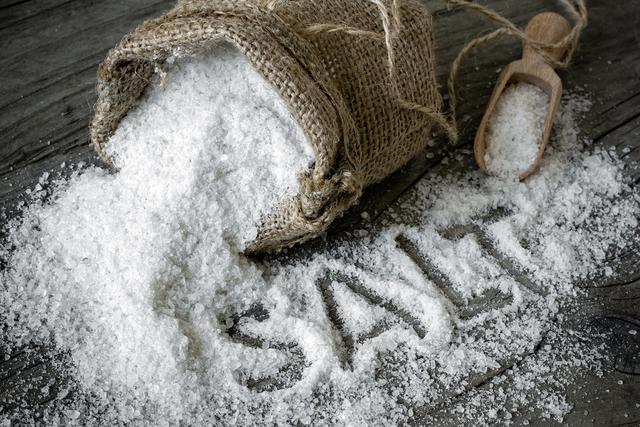
How do you explain the fact that people who eat salty meals have normal blood pressure, but people who eat light meals have high blood pressure?
Nonetheless, as someone said, in real life is that some people obviously taste very light, but still get high blood pressure, on the contrary, some people eat a lot of salty taste, blood pressure is not high at all. This is why?
First of all, the relationship between high salt diet and hypertension is certain, especially in our country, more than half of the hypertensive patients belong to salt-sensitive hypertension, that is, hypertension induced by excessive salt intake, this is because when salt sensitivity, the body water sodium can not be discharged from the body in a timely manner, resulting in water and sodium retention, increase in blood volume, and the blood pressure rises with it.
Our residents' salt intake is generally high, the WHO regulations are 6g per day, but the daily intake of our residents is 10g on average, and even some areas can be in 13g, much higher than the prescribed standard. Therefore, high salt diet has long been recognized as one of the key factors inducing the onset of hypertension in China.

Secondly, however, high salt diet is not the only cause of hypertension, there are many patients whose dietary intake of salt is not high, but they also have high blood pressure. This is actually not difficult to understand, originally the vast majority of hypertension belongs to the primary hypertension, that is, the etiology of hypertension is not clear, because we can not find the cause of the disease, so it is very difficult to cure, can only take antihypertensive drugs to control blood pressure, treating the symptoms but not the root cause.
A high-salt diet is one of the contributing factors, but not the only one. Some people don't eat much salt, but because of the presence of risk factors such as family genetic history, long-term high-pressure stressful work, frequent late nights, sedentary lifestyle, smoking and drinking, obesity and overweight, the risk of high blood pressure is likewise greatly increased.
As for people who eat a lot of salt but also have normal blood pressure, it can only be said that their salt sensitivity is on the low side, or they eat a lot but absorb less, or it is because they eat a lot of salt and at the same time they eat some other foods that are high in potassium, which help to resist the result of the elevation of blood pressure brought about by the high sodium, or although they eat a lot of salt, they consume a lot of salt, such as liking to exercise and having a strong labor force at ordinary times, which leads to a lot of sweating, and these all speed up the sodium excretion, so their blood pressure can also remain stable.
In conclusion, the occurrence of hypertension is the result of a combination of factors over a long period of time, we should not just focus on a particular factor and leave it to chance. Whether you are a salt-sensitive hypertensive patient or not, controlling salt intake is a necessary measure to prevent hypertension.
I am Pharmacist Wang, insisting on spreading knowledge of diseases in simple and easy-to-understand words, and dedicating my own small contribution to a healthy China. If you think my answer is helpful to you, please leave a like! In addition, if you still have related questions, welcome to leave a message, we discuss together!
In the unscrupulous bricklayer fooled, eat salt into eating poison, eat meat eat eat into the three high, many people think still live in those bricklayer instill dross, no real scientific evidence to prove that eat salt eat meat with the three high, if in accordance with the bricklayer fooled us is not to return to that primitive eat grass eat raw society, will have a healthy body, this is only health bricklayer pseudo-Chinese medicine barley think, rely on them to guide the people's health, the national constitution will only be The other day it was officially reported that the foreign language liu liu A few days ago, the official report, the foreign language Lancet magazine have proved that eating meat and salt has nothing to do with the disease, you network have not noticed that in recent times those who make waves bricklayers pseudo-Chinese medicine mostly in the news, online mostly shut up. The people are mostly sensible, no market. Now so many chronic blood diseases, diabetes is likely with our air pollution, food pollution has a great connection, but also with the Western food invasion, KFC, milk tea are not good, but there are a lot of people fighting to line up to eat, which is also irresponsible for their own body indulgence. A few days ago, the newspaper reported that the Western milk tea are added a large number of fructose, a large number of additives to the liver and blood can cause damage, if you do not care about their own mouths will find the body of disease, as long as they do not eat too much salt and eat meat is not a matter of fact, when we were a child the family did not have the money, that is not to eat the sauce, pickles, pickles, moldy tofu heavy salt food grew up, then absolutely not so much three!

High, diabetics, very few have heard of this disease, most of the traditional food is safe, our ancestors also came this way, the modern food, on the contrary, there is a big problem, a large number of additives, chemical additives, drugs and what to look at the inside to add the official also said that in line with the national regulations, it is safe, rest assured that consumption, the operator to do so, who is regulating, so the problem is very big, we have to try to eat as little as possible contain additives Things, it is best to do it yourself. Do not listen to the bricklayer fooled, house everyone has a good body.
This question and answer are from the site users, does not represent the position of the site, such as infringement, please contact the administrator to delete.